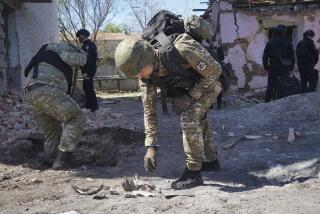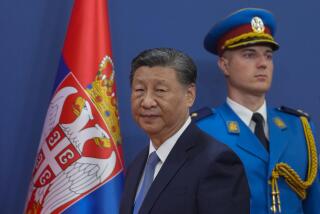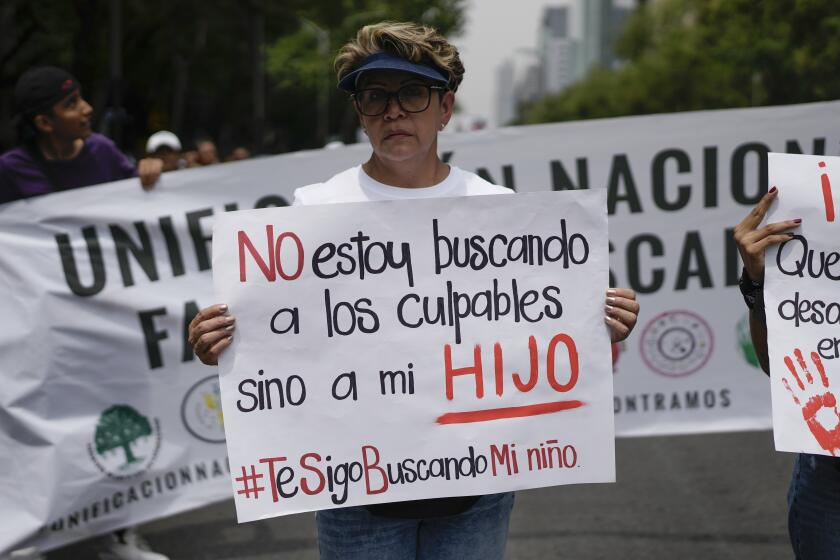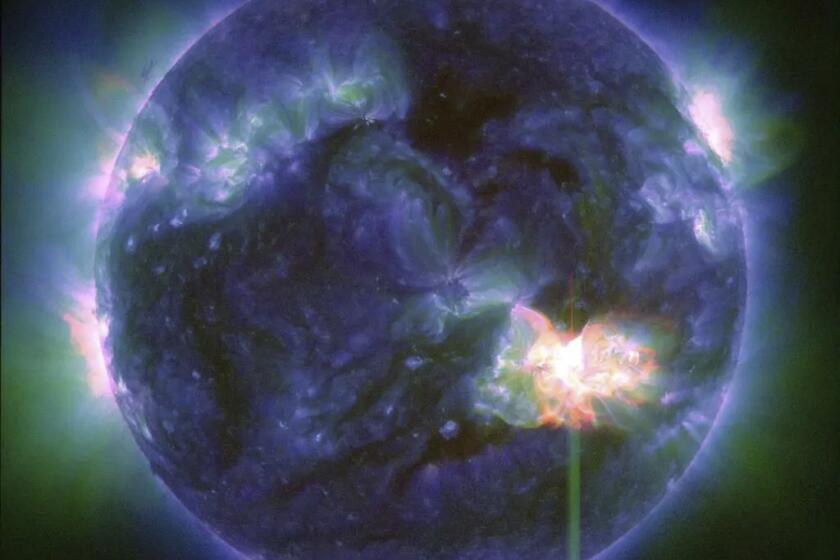Iran-Contra Judge Raps Document Delay : Warns Administration He Will Not Tolerate Foot-Dragging on Data
A federal judge warned the Reagan Administration Wednesday he would not tolerate foot-dragging in turning over classified documents needed in the Iranian arms case, saying slow government procedures were constructing “a stone wall” that could keep the four defendants from going to trial in the near future.
In remarks concluding a day-long pretrial hearing, U.S. District Judge Gerhard A. Gesell declared that “the responsibility lies with the attorney general and the White House” to clear thousands of pages of classified government documents promptly for review by the defense lawyers.
However, it is not clear what effective action Gesell can take if his warning is not heeded. The judge has hinted he might throw out the indictments, but that would be an unlikely sanction against an Administration that is not eager to see the two former White House aides and two associates prosecuted by the court-appointed independent counsel in the case.
Attention on Bottleneck
Rather, the judge’s harsh criticism seems designed to focus public attention on the bottleneck and increase pressure on the Administration to relieve it.
Gesell has estimated that Lt. Col. Oliver L. North and three co-defendants ought to have access to approximately 300,000 classified documents to prepare their defense against the indictment returned on March 16 accusing them of conspiring to obstruct justice in supplying funds to the Nicaraguan Contras from secret sales of arms to Iran.
Fewer than 25,000 documents have been made available so far.
Gesell has said he wants the document release to be expedited so that he can begin the trial by July. If the delays make that impossible, the trial might have to be put off until next year to avoid holding the proceedings during the general election campaign.
Politically Sensitive
The judge’s rebuke suggested that he suspects the slow documents process might be part of an effort to keep the politically sensitive case out of the news during the campaign and the final months of President Reagan’s term.
Administration officials have maintained that the painstaking review is necessary to prevent the disclosure of information crucial to national security.
Independent counsel Lawrence E. Walsh, who will prosecute the case, has been largely dependent on a committee of CIA, State Department and National Security Council officials for screening government documents for submission to defense attorneys.
But Gesell told Walsh that “we cannot satisfy an interdepartmental committee” in a limited period of time, calling instead upon Reagan and Atty. Gen. Edwin Meese III to accelerate the process.
“A stone wall is being built up between this court and going to trial,” Gesell said from the bench. He said he would not permit “the withholding of necessary evidence” for the lawyers for North, former National Security Adviser John M. Poindexter, retired Air Force Gen. Richard V. Secord and businessman Albert A. Hakim.
Will Inquire Further
“I want to find out what is taking place and what’s going to take place,” the judge told Walsh. He said he would inquire further into the matter today.
Gesell’s remarks came a day after Hakim’s attorney filed a formal complaint that his client was being denied “free access” to data necessary for his defense. But the judge’s remarks applied to all of the defendants, rather than just to Hakim, the only member of the group who had never been a government official.
Gesell also listened Wednesday to questions raised by defense lawyers about whether Walsh had improperly used parts of congressional testimony that defendants gave under limited immunity to build his case against the four. Only Secord testified before Congress without a guarantee that his testimony could never be used against him.
Walsh reiterated Wednesday, as he had in a hearing Monday, that he was “inadvertently” exposed several times to “fragments” of the protected testimony of North and Poindexter. But he insisted that the exposure had no significance because he had already obtained incriminating evidence against the defendants.
More to Read
Start your day right
Sign up for Essential California for news, features and recommendations from the L.A. Times and beyond in your inbox six days a week.
You may occasionally receive promotional content from the Los Angeles Times.






